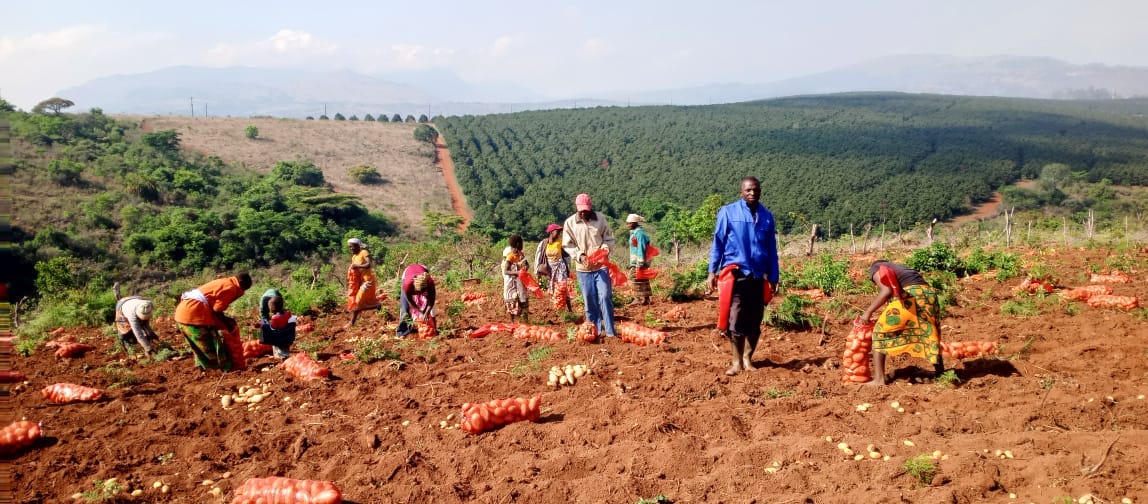Simão Hebete Chingundo amidst his potato harvest in Mozambique.
Potatoes are staples of the Mozambican diet, and have gained popularity amid the country’s population growth. However, the surging demand poses a challenge for local production, which is marked by low yields that range from 4 to 16 tons per hectare. These low yields are due to the rampant use of degenerated seed, cultivar selection that is often based on guesswork, and ineffective chemical practices. Consequently, the country continues to rely on imported and expensive seed potatoes.
Demonstrating agricultural excellence
In an endeavor to increase yields and reduce Mozambique’s reliance on imports, Solidaridad, in collaboration with Wageningen University and Research and the Zambezi Valley Development Agency (ADVZ), initiated a potato demonstration project in Mozambique’s Zambezi Valley. The programme, which ran from 2021 to 2022, illustrated on-site good agricultural practices within the potato sector, and emphasized achievable yields and efficient resource utilization. The results revealed the potential for a highly productive potato sector with yields of over 35 tons per hectare together with an average profit of 1,039,702 Mozambique meticais (16,272 US dollars) per hectare.
Replicating prosperity
Following the demonstration project’s success, ADVZ has partnered with Solidaridad to launch a potato productivity project in 2023. The scaled up goals of the project are to replicate the skills and tools acquired during previous demonstrations, while adopting a different approach to certain programme details.
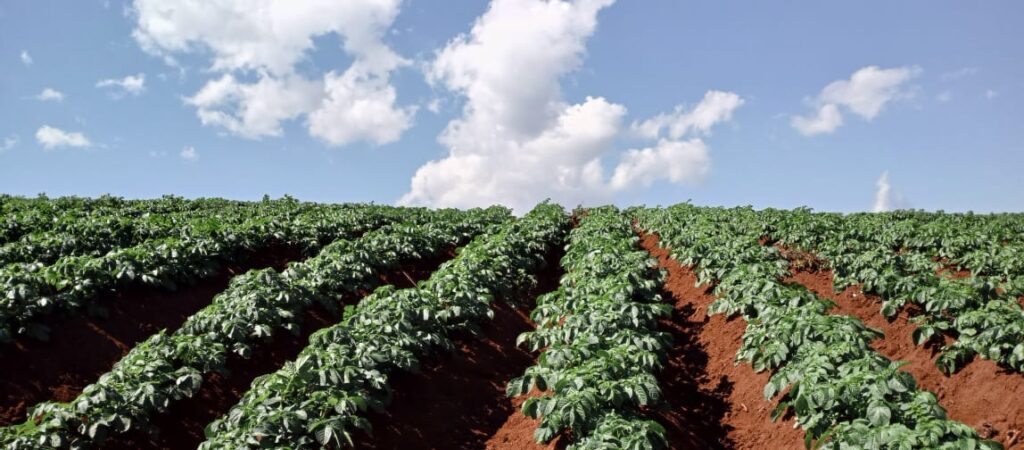
While we’ve maintained the Bayer spraying programme and the Omnia fertilization programme, we’ve partnered with AQI – Casa do Agricultor to import high-quality seed from South Africa, focusing on the high-yielding Mondial cultivar. Additionally, we have implemented rigorous farmer selection criteria. The project considers factors such as land availability and water access, along with a mandatory deposit for input access.
This strategic shift has resulted in remarkable growth for the programme, expanding from 4 farmers with 2 hectares in two provinces to 97 farmers cultivating a combined 100 hectares across four provinces: Tete, Manica, Sofala and Zambezia.
As the implementing partner, Solidaridad provided farmers with training in good agricultural practices, technical assistance and ongoing follow-ups to ensure adherence. Our project officers went the extra mile, facilitating market linkages and offering advice for preferential market access.
As expected, the results speak volumes. In October/November 2023, farmers celebrated a bountiful harvest with yields ranging from 45 to 60 tons per hectare—a staggering 375 percent increase compared to their previous yields. The harvested potatoes were distributed locally, transported to other provinces, and supplied to medium-high markets such as Shoprite.
On the road to success
The positive impact on smallholder livelihoods is substantial, as exemplified by Mr. Renimo Macanhire and Mr. Simão Hebete Chingundo from the administrative post of Choa, in Manica Province.
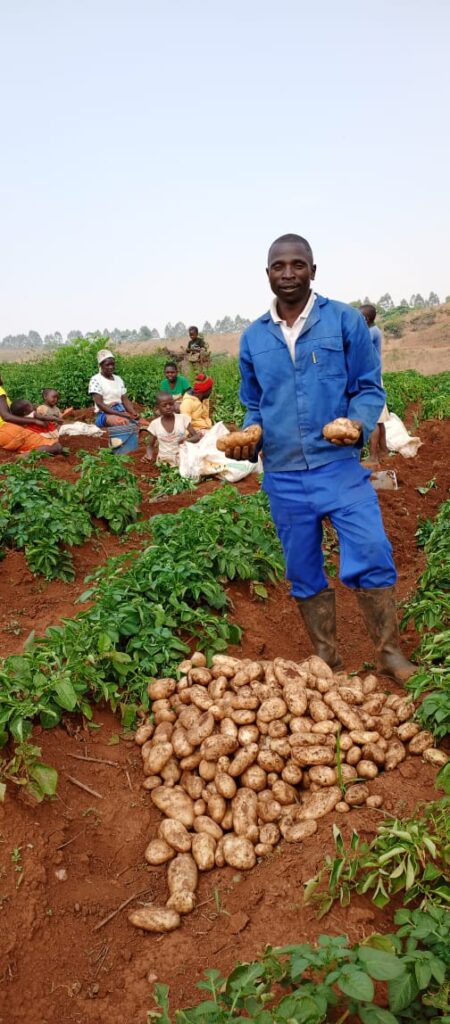
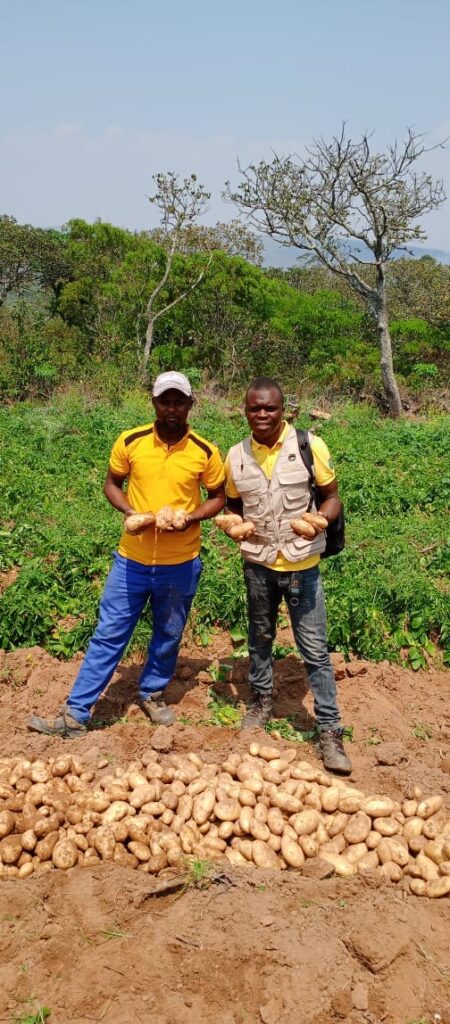
Mr. Renimo Macanhire, age 35, planted 0.5 hectares of potatoes and successfully harvested and sold 10,300 kg. He generated 360,500 Mozambique meticais in revenue. He prioritized the settlement of 50 percent of his debt with ADVZ, with savings set aside to purchase fertilizers, pesticides and labor. Additionally, he invested in a Lifan Camelo motorcycle to enhance his agricultural efficiency. With 10 percent of his field area yet to be harvested, he plans to save part of his production as seed for the next growing season.
At 36 years old, Mr Simão Hebete Chingundo received inputs for 0.5 hectares. He successfully harvested and sold 13,800 kg, generating 483,000 Mozambique meticais. Similarly to Mr. Macanhire, he first settled 50 percent of his debt with ADVZ, and then wisely invested in a Lifan Camelo motorcycle. His plans closely mirror those of Mr. Macanhire, and include saving part of his production as seed for the next season while establishing a fund for purchasing fertilizers, pesticides and labor.
The project’s success goes beyond immediate individual gains. The scaled up potato productivity project has successfully transformed smallholder livelihoods and made significant strides toward minimizing potato imports in Mozambique. The implications are far-reaching, contributing to the county’s broader goals of food security, economic resilience and community development.
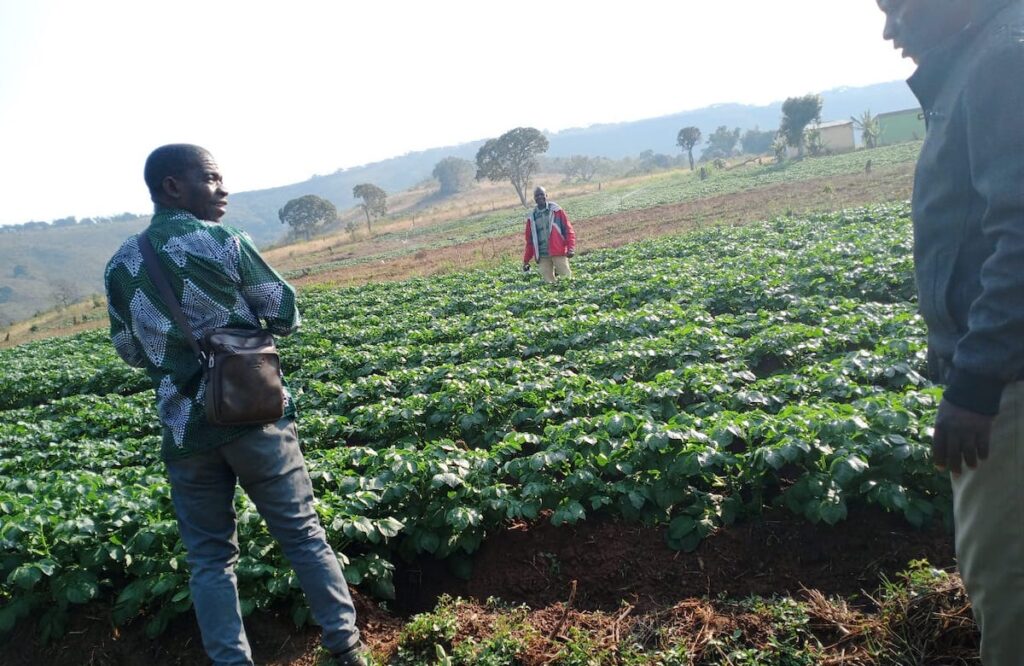
However, while the initiative has made substantial progress, achieving complete independence from potato imports might require continued effort. Collaboration is a key catalyst for scaling the impact of successful initiatives, and Solidaridad aims to work with the Government of Mozambique and various stakeholders to replicate the potato productivity project’s success in more regions.

